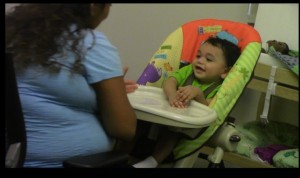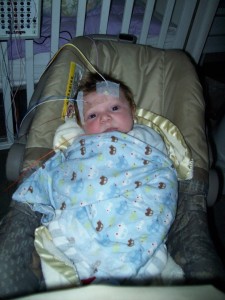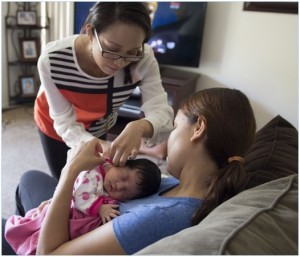- Principal Investigator(s): Kimberly D’Anna-Hernandez, PhD
- Project Funding Period: 07/01/2017 – 06/30/2020
- Project Funding Source: National Science Foundation
Summary
This study addresses emotional regulation in children through allostatic load (exposure to maternal sociocultural stressors) and neural plasticity (P50, RSA and HPA axis) in ways that separate out the bottom-up and top-down processes as well as patterns of autonomic nervous system (RSA) and HPA-axis (cortisol) responding to emotional situations. This study will extend current theory by investigating a variety of maternal sociocultural maternal stressors, by attempting to isolate prenatal programming effects by testing infants and including measures of early brain development to address biological programming in the model of infant emotional regulation.
In addition, it will allow inferences to be made that dysynchrony between behavioral (Still Face) and physiological response (RSA and cortisol) systems that may itself indicate emotion dysregulation in young children. Thus the aim of this proposal is to investigate whether and to what extent different types of sociocultural stressors contribute to emotional regulation in young children and if this is moderated by a marker of early brain development in neonates and if adherence to cultural values may optimize offspring developmental outcomes.
Contact Information
Kimberly D’Anna-Hernandez
Principal Investigator
T: (760) 750-8275
E: kdanna@csusm.edu



